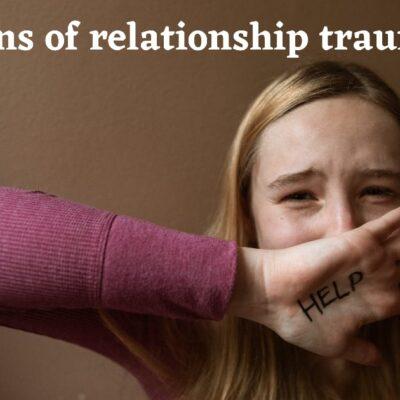Signs of relationship trauma: An unhealthy relationship can generate both psychological and emotional trauma. Ongoing conflict and abuse can lead to stress, which leads to the development of trauma symptoms with time. Here, in this topic, you can learn about signs of emotional trauma.
Signs of relationship trauma:
Feelings shocked
Being disclosed relationship trauma can make you feel shocked as if you cannot accept such abuse would happen to you.
Irritability
You may have had an optimistic personality before your relationship, but afterward, it is not uncommon for people to become irritable. You may notice that you get irritated easily or snap at other people.
Mood swings
Another sign of trauma is mood swings. After living through trauma, you are likely to find that your mood changes too quickly. It is because the brain has become more reactive to what is going on in the environment.
Feelings of sadness
Sadness is one of the most familiar reactions to trauma, so you are likely to feel low if you are in a traumatic relationship.
Anger
Anger is another typical emotional reaction to trauma. You may thrash out at others or become easily provoked if you are experiencing relationship trauma.
Repressing emotions
Trauma can be hard to process, so some people may deal with trauma by repressing their emotions. You may refuse that you are upset in an attempt to move on from the trauma.
Also Read: How to stop being needy in a relationship?
Difficulty with emotional regulation
Most people can cope with experiences and stress and negative emotions without reacting inappropriately or unacceptably. After living through trauma, it is not unusual for people to struggle with the regulation of emotions, so they may respond intensively when angry or sad, or have emotional breakdowns over situations that seem insignificant to others.
Endeavoring to numb emotions
Trauma can lead you to feel numb so that you do not have to deal with upsetting emotions like guilt or sadness. You may turn to unhealthy methods of emotional numbing, which may include drinking or engaging in self-injury.
Feeling disconnected from other people
If you notice yourself withdrawing from friends and family and staying isolated, this could be a sign of relationship trauma. It can be hard to connect with others when you are feeling guilt, shock, sadness, or surrounding trauma.
You feel different
Just as trauma can lead you to feel disconnected from other people, it may also cause you to feel as if you are somehow different from those who have not experienced trauma. Trauma comes with feelings of shock, and you may feel that others cannot relate to your experience.
At the end
Living with relationship trauma can create stress and lead to painful emotions. These feelings may be hard to overcome, but you can heal with the help of a therapist. Therapy sessions provide a safe space for you to deal with your emotions and discover new ways of thinking after living through trauma.
As you heal and surround yourself with supportive and positive people, you will find that you can have a loving relationship again, without allowing relationship trauma to interfere with the connection you have with a partner in the past.



